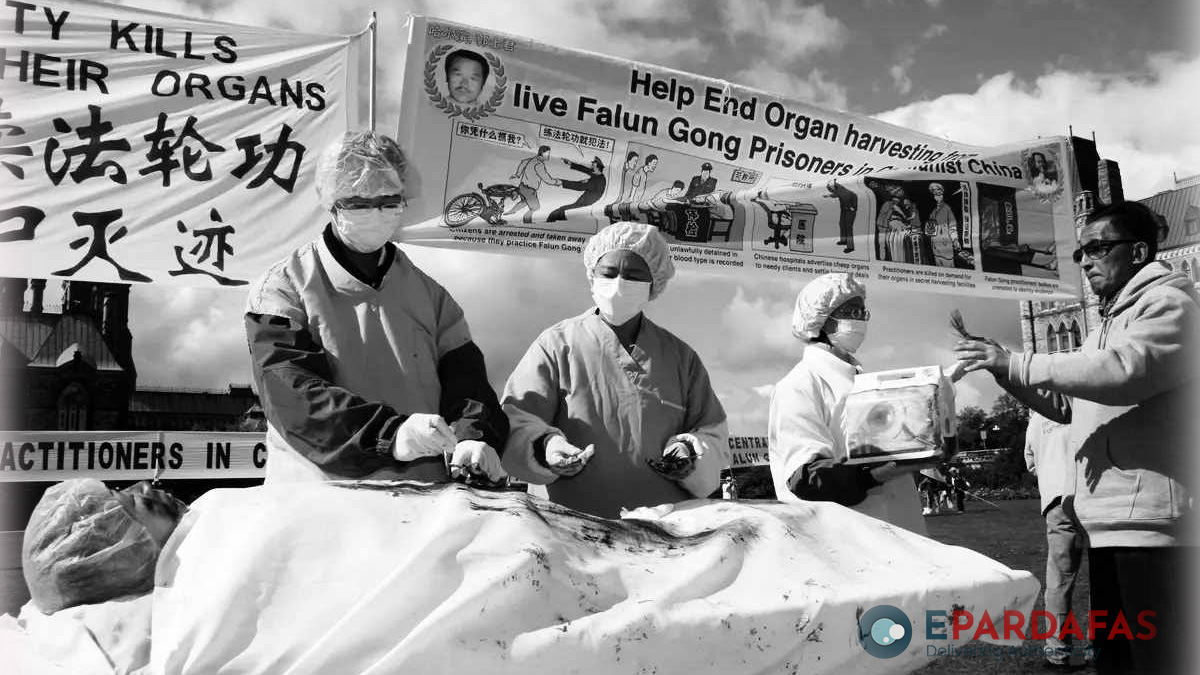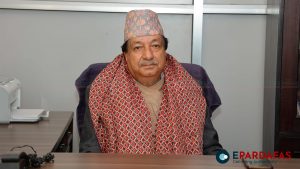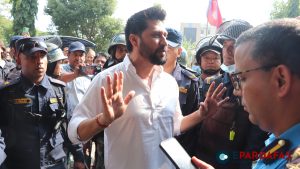
CCP’s Voluntary Organ Donation Campaign Raises Alarming Concerns Over Forced Harvesting in China
Amid the Chinese Communist Party’s (CCP) vigorous push for voluntary organ donation, orchestrated by the China Organ Donation Administrative Center (CODAC), mounting evidence suggests a disconcerting undercurrent of coercion and forced organ harvesting. The CODAC’s extensive nationwide campaign, inaugurated with the “2023 National Voluntary Human Organ Donation Registration and Promotion Season Activity” in July, ostensibly advocates for the altruistic act of saving lives through organ donation.
However, a detailed investigation by The Epoch Times reveals a disturbing pattern of alleged coercion and involuntary registrations. Chinese netizens, particularly on platforms like Douyin and Weibo, share unsettling accounts of being enrolled in the organ donation system without their explicit consent. Reports highlight the forced inclusion of school students, adding an alarming dimension to the already concerning situation.
Instances of mandatory registration emerge from various institutions, including Linshu County Maternity and Child Health Hospital. A netizen recounts how all staff members were compelled to register as voluntary organ donors, expressing anxiety about the mandatory commitment until at least 2024. This revelation raises questions about the voluntariness of the campaign and whether individuals truly have the freedom to withdraw from the organ donation registry.
Wang Zhiyuan, president of the World Organization to Investigate the Persecution of Falun Gong (WOIPFG), adds a layer of complexity to the narrative. He accuses the CCP of fabricating organ donation data to conceal the long-standing crimes of forced organ harvesting, particularly from Falun Gong practitioners. This alleged deception involves a historical denial of using organs from executed prisoners, which has transformed into a comprehensive organ transplant system, with official figures being labeled as “fake.”
The CCP’s purported forced organ harvesting has evolved into a highly profitable industry, extending beyond persecuted groups like Falun Gong practitioners. Recent regulatory developments, including the CCP’s approval of the “Regulations on Human Organ Donation and Transplantation (Draft Revision)” on October 20, 2023, further raise concerns about the formalization of state-sanctioned harvesting practices. This move complicates international efforts to investigate and curtail these alleged atrocities.
International responses to the issue have taken shape, notably with the U.S. House of Representatives passing the “Stop Forced Organ Harvesting Act of 2023.” Despite these legislative measures, advocates stress the need for a unified global initiative to address the CCP’s alleged genocidal crimes. The CCP’s forced organ transplant system, driven by financial motives, appears to be expanding beyond targeted groups, making ordinary citizens in mainland China potential victims.
The intersection of politics and profit in the alleged forced organ harvesting adds another layer of complexity to the narrative. Dr. Wang emphasizes that the CCP has established a comprehensive system, turning organ harvesting into a “dark industry of huge profit.” This system not only extends the lifespan of high-ranking CCP officials but also involves the global sale of organs, making it a matter of international concern.
The opaque nature of the CCP’s actions makes it challenging to ascertain the exact number of individuals affected by forced organ harvesting. The lack of survivors from these operations further complicates efforts to uncover the scale of these alleged crimes. Reports from Canadian activists David Kilgour and David Matas in 2006 suggest staggering profits associated with organ transplants, with specific price lists for organs, including kidneys, livers, and hearts.
The recent passing of the “Regulations on Human Organ Donation and Transplantation (Draft Revision)” adds a legal layer to the controversy, with experts suggesting that it could be an attempt to formally legitimize the CCP’s state-sanctioned organ harvesting. Tang Jingyuan, a senior commentator on China’s current affairs, views these revised regulations as a means to systematically cover up the CCP’s crimes and patch legal loopholes, hindering external investigations into state-sanctioned massive murder.
The alleged expansion of forced organ harvesting from targeted groups, such as Falun Gong practitioners, to ordinary Chinese citizens underscores the gravity of the situation. Critics argue that the revised regulations further complicate efforts to unveil the dark secrets of the CCP’s alleged crimes, making it more challenging for the global community to intervene effectively.
The financial motivations behind forced organ harvesting, coupled with the alleged involvement of high-ranking CCP officials, create a challenging landscape for advocacy and intervention. Dr. Wang’s call for global action against the CCP’s genocidal crime emphasizes the need for the world to unite against a practice deemed “anti-humanity.”
As international awareness of forced organ harvesting grows, political and economic ramifications become increasingly relevant. The intersection of organ trafficking, global medical tourism, and the alleged complicity of certain countries, such as Japan and South Korea, underscores the need for a coordinated effort to address this complex and morally reprehensible issue.
In conclusion, the alleged forced organ harvesting in China, driven by political agendas, financial interests, and an alleged disregard for human rights, demands sustained international attention. The multifaceted nature of this issue, encompassing allegations of coercion, fabrication of data, legal maneuvers, and global implications, reinforces the urgency of a unified global response.
News Courtesy: Sophia Lam and The Epoch Times Investigative Team
This report, led by Sophia Lam, features contributions from a dedicated team of journalists including Mary Hong, Eva Fu, Joan Delaney, Luo Qiong, Matthew Robertson, and Li Li, all from The Epoch Times. Their collaborative efforts have brought to light the concerning developments surrounding China’s voluntary organ donation campaign and the associated fears of coercion and forced harvesting. This comprehensive coverage aims to shed light on the complexities of the situation, emphasizing the need for global awareness and action.














Comments